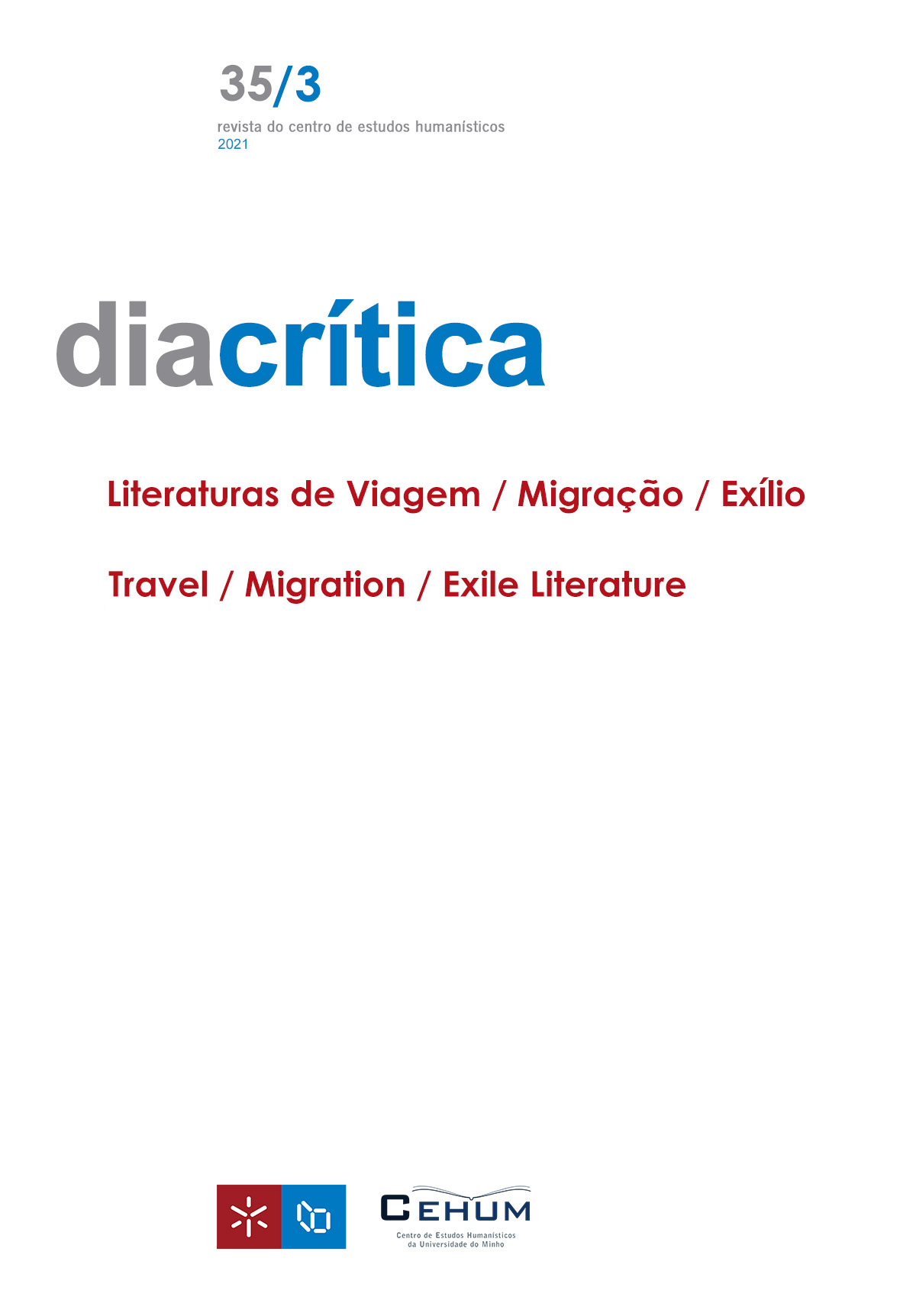Rumo(res) a um Teatro não teatral. Grotowski e os anos 70
DOI:
https://doi.org/10.21814/diacritica.5191Palavras-chave:
Grotowski, Parateatro, Teatro das Fontes, Encontro, ContatoResumo
Grotowski estabelece uma investigação artística com integrantes de diversas culturas, carregados por seus dramas sociais, rituais e comportamentos socioculturais. O Parateatro é abordado prioritariamente no contexto histórico-cultural entre 1970 e 1975, promovido também pelo movimento de contracultura e ruptura da dicotomia ator/espectador, para uma participação ativa de todos envolvidos. Cultura, história, arte e teatralidade são alicerces para esta discussão. Estabelece-se contato com pesquisas acerca de aspectos comportamentais socioculturais da performance, lidando com o trabalho transcultural do Teatro das Fontes entre 1976 e 1982. Esses períodos despontam caminhos para um teatro não teatral grotowskiano e sugerem a arte como veículo de transformação do mundo individual e coletivo. Erika Fischer-Lichte, Richard Schechner e Victor Turner formam parte do núcleo de suporte teórico.
Referências
Fischer-Lichte, E. (2005). A cultura como performance: Desenvolver um conceito. (M. H. Serôdio, Trad.). Sinais de Cena, 4, 73–80. DOI: https://doi.org/10.51427/cet.sdc.2005.0043
Fischer-Lichte, E. (2010). Performance as event –reception as transformation. In E. Hall & S. Harrop (Eds.), Theorizing performance: Greek drama, cultural history and critical practice (pp. 29–42). London: Bloomsbury Academic.
Grotowski, J. (2001a). Holiday [Swieto]: The day that is holy. In R. Schechner & L. Wolford (Eds.), The Grotowski Sourcebook(pp. 215–225). London and New York: Routledge.
Grotowski, J. (2001b). Theatre of Sources. In R. Schechner, & L. Wolford (Eds.), The Grotowski Sourcebook (pp. 252–270). London and New York: Routledge.
Grotowski, J. (2010). Da companhia teatral à arte como veículo. In L. Flaszen, & C. Pollastrelli (Orgs.),O Teatro Laboratório de Jerzy Grotowski 1959-1969 (pp. 226–243). São Paulo: Perspectiva.
Kumiega, J. (1992–1993). El final del Teatr Laboratorium. Máscara -Cuaderno Iberoamericano de Reflexión sobre Escenologia, 3 (11-12), 114–121.
Larrosa-Bondía, J. (2002). Notas sobre a experiência e o saber da experiência. Revista Brasileira de Educação, 19, 20–28. DOI: https://doi.org/10.1590/S1413-24782002000100003
Marinis, M. de (1992–1993). Teatro Rico y Teatro Pobre. Máscara -Cuaderno Iberoamericano de Reflexión sobre Escenologia, 3(11-12), 83–95.
Olinto, L. (2016). Conjunctio Oppositorum e o Parateatro de Jerzy Grotowski e Companhia (1970-1982) (Tese de doutorado, UniCamp, Campinas).
Osinski, Z. (1992–1993). Grotowski traza los caminhos. Máscara -Cuaderno Iberoamericano de Reflexión sobre Escenologia, 3 (11-12), 96–113.
Schechner, R. (2013). Performance studies: An introduction. (3.ª ed.). London and New York: Routledge.
Turner, V. (2003). Social Dramas and stories about them. In P. Auslander (Ed.), Performance: Critical concepts in literary and cultural studies (Vol. III, pp. 108–133). London/New York: Routledge.
Downloads
Publicado
Como Citar
Edição
Secção
Licença
Direitos de Autor (c) 2023 Bruno Leal brulepi@gmail.com

Este trabalho encontra-se publicado com a Creative Commons Atribuição-NãoComercial 4.0.










